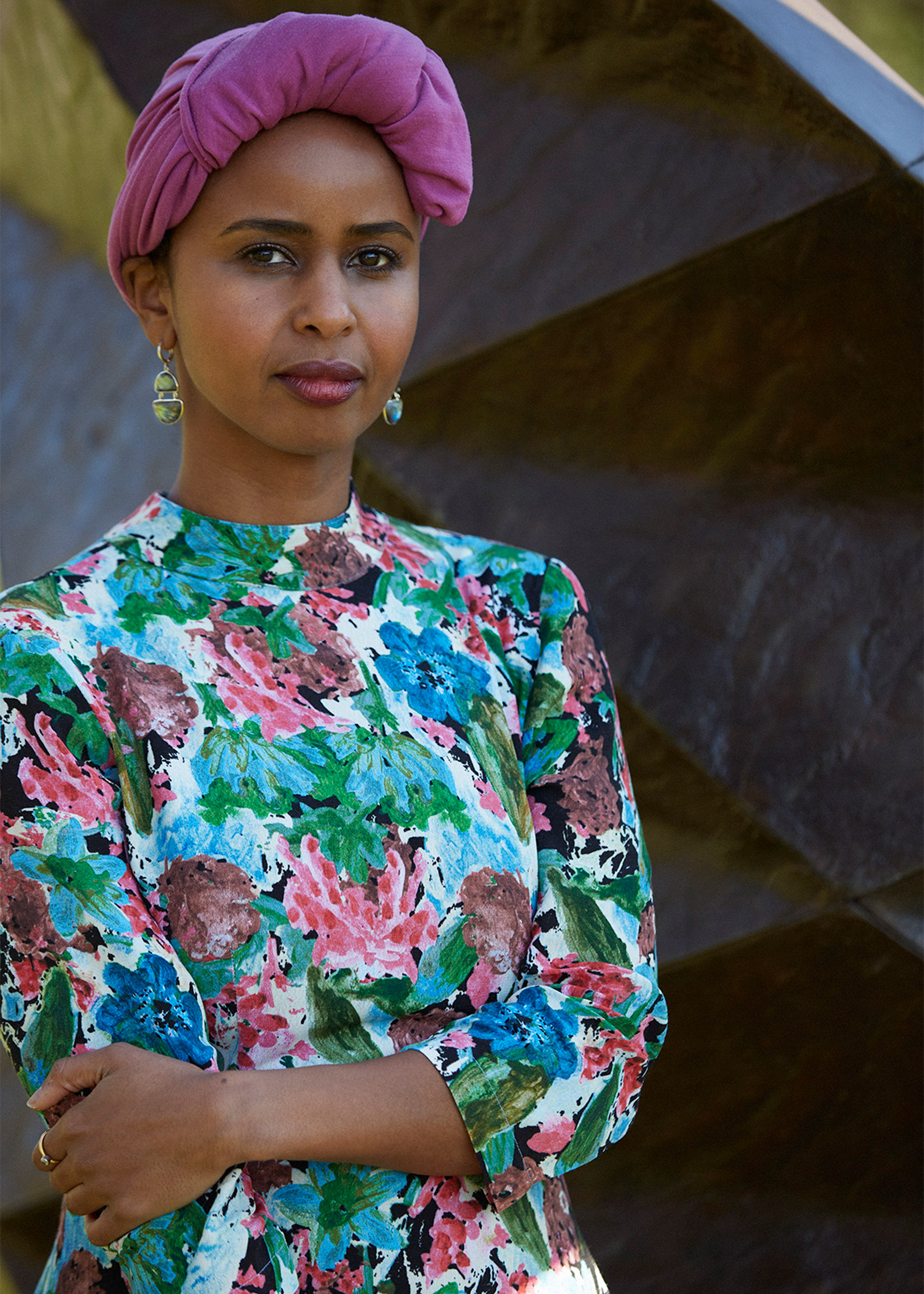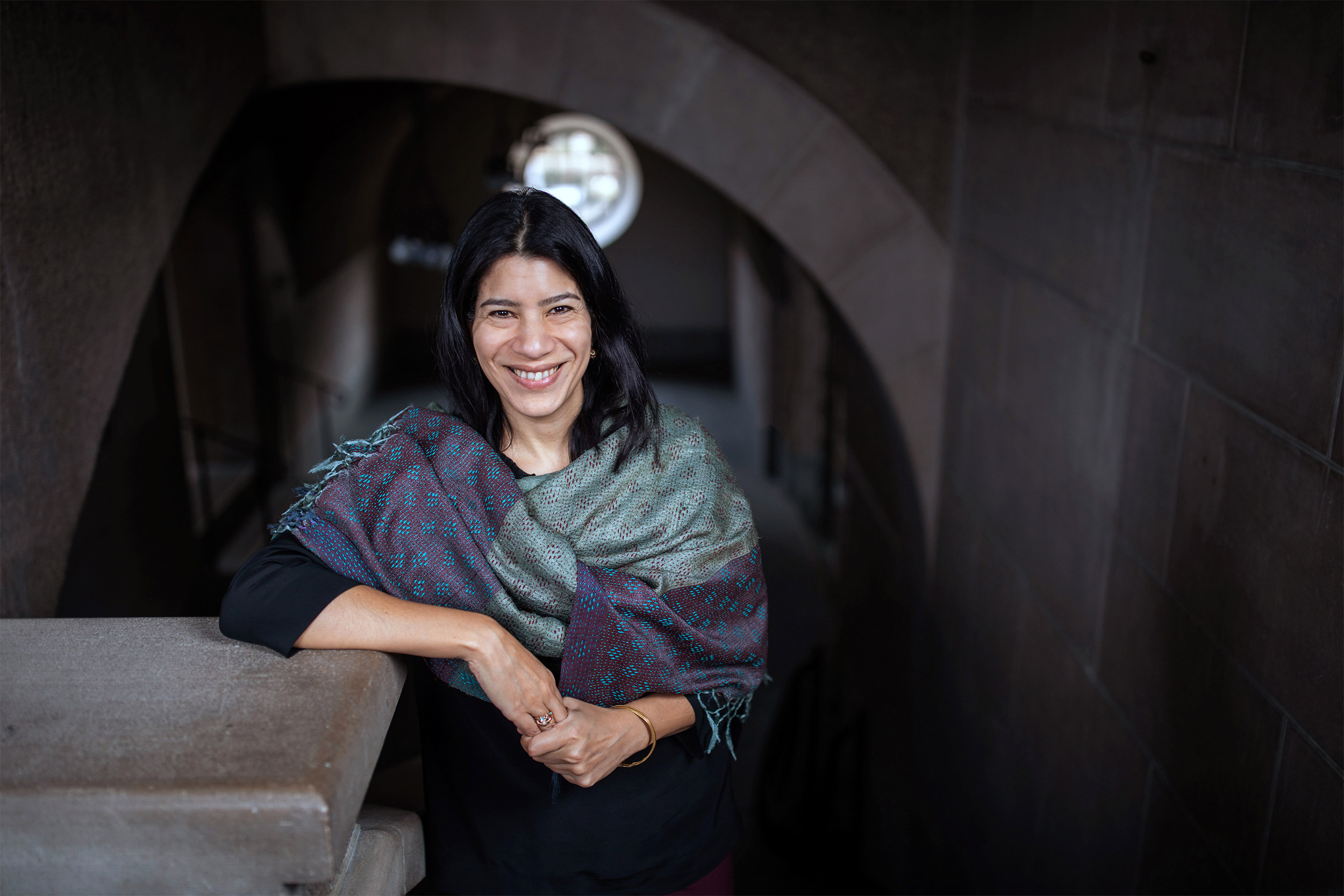Finding the truth in fiction
CES faculty Maya Jasanoff in conversation with novelist Nadifa Mohamed

Somali-British novelist Nadifa Mohamed will join Maya Jasanoff in conversation at the Writers Speak Series at the Mahindra Humanities Center.
© Sean+Seng
As a young child, historian Maya Jasanoff followed her parents on trips to historic sites around the world. In India, where her mother is from originally, she spotted street signs referencing Shakespeare and imperial British figures and became lastingly curious about how cultures, power, and people cross borders, and the stamp of the British empire on it all.
It’s these questions that will form the basis for her conversation with Somali-British novelist Nadifa Mohamed on Tuesday, one installment of the Writers Speak series at the Mahindra Humanities Center and the History Seminar, which Jasanoff co-chairs as resident faculty of the Minda de Gunzburg Center for European Studies. Her discussion with Mohamed is intended to initiate conversations to engage with writers who bring interesting new perspectives to the study of European history.
In 2021, Jasanoff chaired the judges’ panel for the Booker Prize, the leading literary award for works of fiction written in English. Although she read 160 books that year, Jasanoff says that Mohamed’s “The Fortune Men” is one novel that quickly stood out.
“The quality of storytelling, the unusual nature of the story, and the moral urgency of the book shone through,” she said from Harvard’s Smith Campus Center, seated in front of a living plant wall. “As a historian of the British Empire, I felt as if this book was teaching me things about those entities and the nature of the global interconnected world that I have not known before.” The novel was subsequently named a 2021 Booker Prize Finalist.
The book, Mohamed’s third novel, is a fictionalized account of the true story of Mahmood Hussein Mattan. The young British Somali merchant seaman was falsely accused, wrongfully convicted, and hanged for the murder of a Jewish shopkeeper in Cardiff, Wales, in 1952.
The book recounts the ordeal. It’s obvious even from the jacket description that Mahmood is a doomed man, and the story reads like a deepening wound, revealing the racial bias inherent in the era’s judicial system, and silently drawing attention to whose voices get the privilege to narrate history most loudly.

As a Booker Prize judge, Maya Jasanoff read 160 books, but said it was Nadifa Mohamed’s novel that stood out.
David Elmes for Minda de Gunzburg Center for European Studies
Jasanoff explained, “As the book goes on, the wheels of justice effectively grind him down. He’s innocent but he ends up unable to prove that to the standards required by the court, the layered imperatives of pressure on the police to solve the case, and the racist disregard for finding the truth.”
Mohamed told the Booker Prize committee, “I knew I wanted to make the line between fact and fiction imperceptible.” This genre-bending blur between fiction and nonfiction fascinates Jasanoff, too. She teaches a popular Department of History graduate seminar at Harvard each year titled “Narrative History: Art, and Argument.” The course’s goal, she said, is to encourage students to practice ways of storytelling that go beyond some of the formulaic methods one might find in an academic journal article.
Jasanoff said she asked Mohamed to speak to the wider Harvard community because, “I think that bringing a novelist who is engaging with history will help us think about different ways to tell stories about the past.” She also expects that Mohamed will share how she first uncovered Mahmoud’s story and researched his life and community — one that until very recently never made it into European history textbooks.
Is it possible that at times fiction is actually a more truthful means of understanding historic events than the documents found in an historic archive? “In the fiction genre, we can find different ways to hear voices that have been potentially marginalized by more traditional methods of scholarly writing,” Jasanoff said. She explained that documents from an archive are filtered through the person who wrote them — more often than not, a colonial official or someone in a position of power. “We need to be more imaginative and open about the way we approach the archive,” she tells her students.
In Jasanoff’s own case, that rang true during the research process for her book “The Dawn Watch: Joseph Conrad in a Global World,” which was awarded the 2018 Cundill History Prize for historical literature, and digs deeply into Conrad’s biography as a vehicle for understanding globalization and migration routes.
Interestingly, these themes intersect with those that Mohamed returns to again and again in her books, as she followed the Somali British sea merchants in her 2010 novel “Black Mamba Boy,” arguably an unofficial prequal to “The Fortune Men.” The protagonists’ struggles to belong and overcome discrimination in the era encompassing decolonization and the consolidation of the British Commonwealth of Nations echoes historic events closely.
Although “The Fortune Men” doesn’t reference current events, the comparisons are obvious. “That’s part of the strength of work like this. It’s not addressing present-day parallels overtly, but it’s giving you something to think about in the present,” Jasanoff said.




